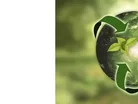Mars, SABIC and Huhtamaki: Supporting the Circular Economy

Mars, the multinational, American manufacturer of all your favourite chocolate bars, your pets’ favourite food, and a few other bits that you’ll find at the bottom of the pantry, is trying it’s best to become “eco-friendly”. The company has announced today that it will incorporate recycled polypropylene plastic into the primary packaging for some of its popular pet food brands.
For Mars, this marks an important step in its efforts to reduce virgin plastics use across its packaging portfolio, to do its part to build a circular economy where no packaging becomes waste.
Through its partnership with global packaging supplier Huhtamaki and petrochemical leader SABIC, Mars will use recycled plastic which has been manufactured using an advanced recycling process for its pet food packs. Thanks to this process, the packs will not feel or be different from those made with traditional virgin plastic but will have the added benefits that they include recycled material coming from previously used plastic products.
The recycling approach used by SABIC to make its certified circular polypropylene is one of the only solutions currently available that is able to take mixed, used plastic that is otherwise hard to recycle via traditional recycling routes and to transform them back into plastic suitable for new food-grade recycled packaging. Mars is piloting this in Europe in 2020 and will increase volumes used into 2021, with ambitions to expand the use of recycled content to other brands.
Barry Parkin, Chief Procurement and Sustainability Officer at Mars, Incorporated, said: “Plastic packaging littering our land and oceans is not acceptable, and at Mars, we’re committed to helping address this problem. To do this, we need to reduce packaging we don’t need, redesign the remaining packaging to become circular and invest to close the loop to help scale up recycling systems.
“Through our partnership with Huhtamaki and SABIC, we will test-and-learn, progressively scale up recycled plastic content in our packs, and ultimately help drive circular packaging systems.”
The recycled material is certified under the ISCC PLUS (Institute of Sustainability & Carbon Certification) scheme that uses a “mass balance” approach. This widely recognized international sustainability certification scheme verifies the quality and authenticity of the recycled material along the supply chain from feedstock to final product.
The partnership comes as part of Mars’ Sustainable Packaging Plan and ambitions to use 100% reusable, recyclable or compostable packaging by 2025. Using advanced recycling technology will be an instrumental part in achieving use of 30% recycled plastics and to reduce virgin plastic use by 25%.
Charles Héaulmé, President and CEO of Huhtamaki said: “We are fully committed to playing our part in building a circular economy across the value chain and partnering with others to do so. Our strategic partnership with Mars and SABIC is a great example of how collaboration can result in breakthroughs that deliver significant progress in our journey to designing 100% of our products to be recyclable, compostable or reusable by 2030. This new flexible packaging structure with recycled food-grade plastic is an important milestone on our journey towards achieving more than 80% of raw materials we use to be either renewable or recycled.”
Mark Vester, Global Circular Economy Leader at SABIC, said: “We are proud to show how this collaboration with Mars and Huhtamaki reflects our trust and willingness for innovation and a shared constructive and pioneering spirit. At SABIC we are committed to developing new solutions to meet our customers’ demands for increasingly sustainable solutions. SABIC’s certified circular products from our TRUCIRCLE™ portfolio offer a carbon footprint reduction of 2kgs of CO2 for every kilogram of polymer produced diverted from incineration. Only through partnerships such as this can we prove the commercial viability and sustainability contribution of advanced recycling processes to help confront the challenges our society is facing today.”
This work is part of Mars’ mission and responsibility to help create a healthy planet on which all people can thrive – a belief that’s at the heart of the Mars’ $1 billion Sustainable in a Generation Plan.
- The University Manufacturing Circuit Boards from LeavesSustainability & ESG
- Schneider Electric's Commitment to Sustainable ManufacturingSustainability & ESG
- Lenovo & Saudi Alat Building Green Manufacturing FacilitySustainability & ESG
- Nissan Brings Biodiversity to the Factory through RewildingSustainability & ESG

